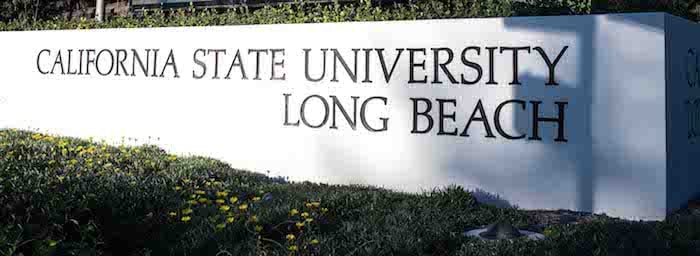
Several Cal State Long Beach students are ready to present their undergraduate research on an assortment of topics at a prestigious conference next month in Memphis, but those plans might be scrapped due to a California law that bans state-funded travel to states that discriminate against the LGBTQ community. Photo: Trang Le/Q Voice News
LONG BEACH – Several Cal State Long Beach students are ready to present their undergraduate research on an assortment of topics at a prestigious conference next month in Memphis, but those plans might be scrapped due to a California law that bans state-funded travel to states that discriminate against the LGBTQ community.
The Council on Undergraduate Research conference, which takes place from April 6 to 8 and showcases work by more than 3,000 undergraduates, is known as a top-notch opportunity to make an academic impression and network for jobs and graduate programs.
The Cal State Long Beach students’ research topics include the academic success of Cambodian American students, healthy ice cream and smart water surface vehicle, university spokeswoman Terri Carbaugh says.
TRIP IN LIMBO
Cal State Long Beach was going to pay the travel expenses for 12 students to attend the conference, but this year it will take place at the University of Memphis in Tennessee. That new California law — which took effect January 1 — lists Tennessee as well as Kansas, Mississippi and North Carolina, as states subject to the ban on California-funded travel.
As a result, the university is considering fundraising and perhaps using research money to pay the $7,200 tab necessary to send its 12 students to the conference, Carbaugh says.
UNIVERSITY DECISION
Cal State Long Beach President Jane Close Conoley decided the campus will support students selected for the conference to pursue research and support their academic success, Carbaugh tells the Los Angeles Times.
“Cal State Long Beach absolutely endorses the spirit of the law — that everybody in our state is considered equal irrespective of your socioeconomic background, irrespective of who you love, irrespective of who you pray to,” Carbaugh says. “We believe in this instance that having students participate in the research conference is really in line with the much larger spirit of sharing the knowledge that we have with as many people as we can.”
Tennessee was included on the banned list because a 2016 law allows allows therapists and counselors with “sincerely held principles” to reject LGBTQ clients.
EXCEPTIONS
The California law has exceptions. For example, grants, litigation or contracts signed before January 1 that require visits.
